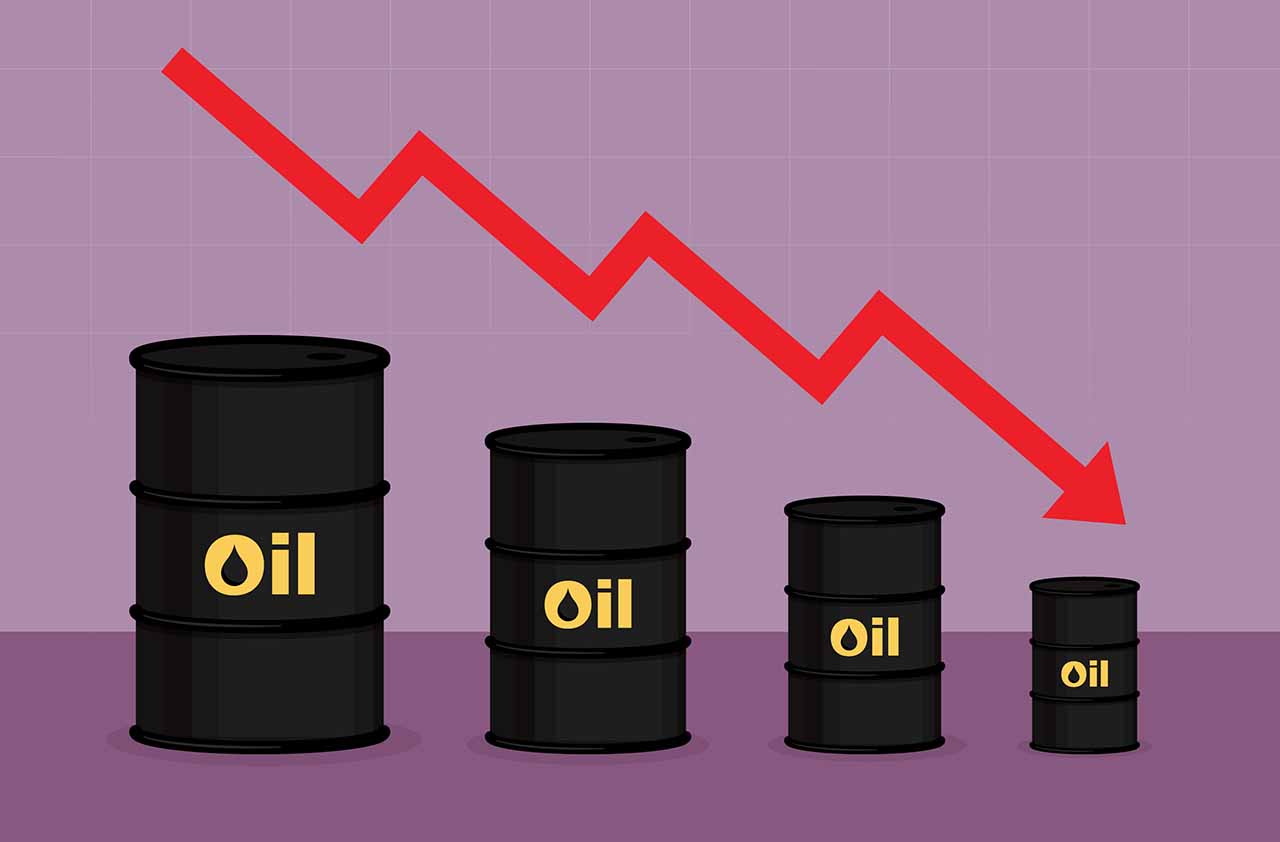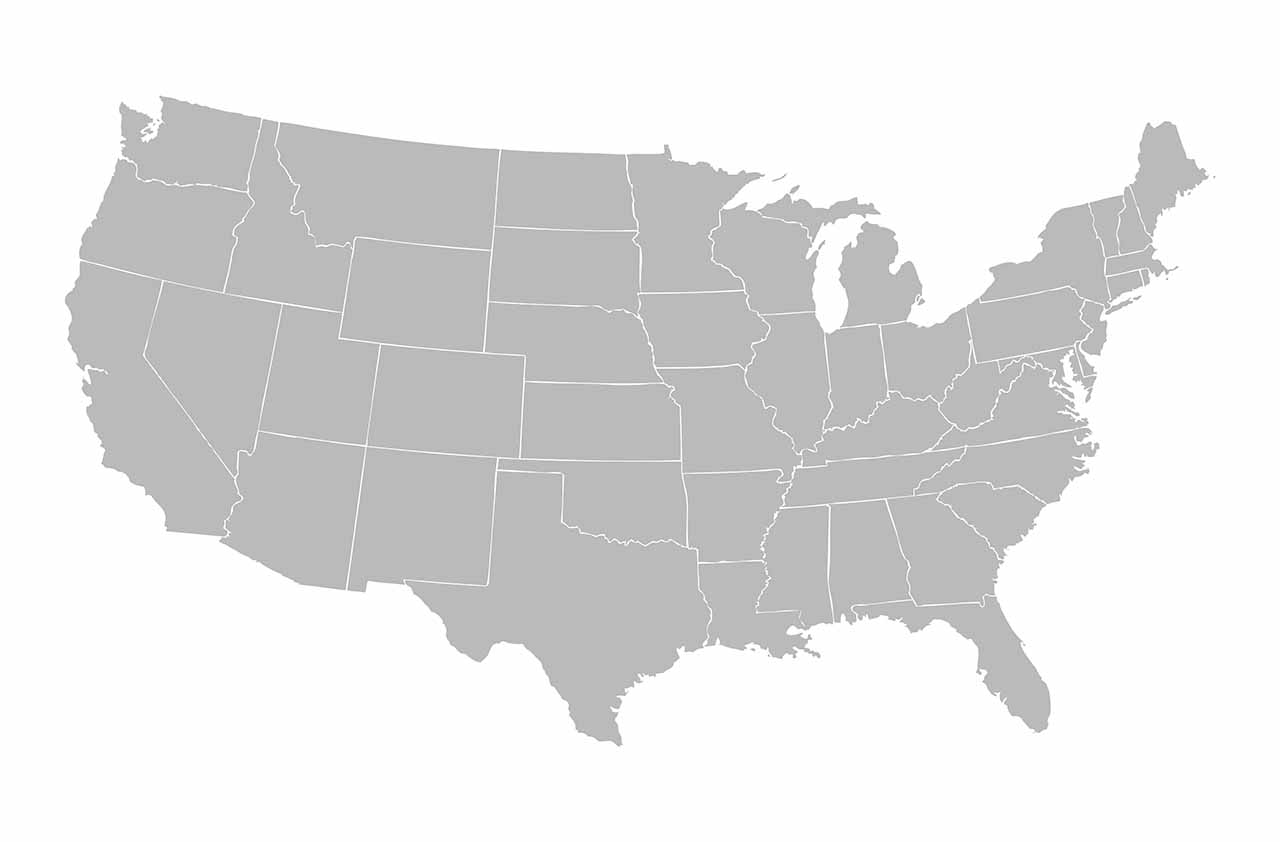What Happens If Big Tech Breaks Up?
Hosts Ryan Ermey and Sandy Block are joined by Kiplinger Letter tech expert John Miley to discuss the ramifications of breaking up major tech companies such as Facebook and Google. The pair also delve into strategies for those who can't pay their tax bills on time.

Profit and prosper with the best of Kiplinger's advice on investing, taxes, retirement, personal finance and much more. Delivered daily. Enter your email in the box and click Sign Me Up.
You are now subscribed
Your newsletter sign-up was successful
Want to add more newsletters?

Delivered daily
Kiplinger Today
Profit and prosper with the best of Kiplinger's advice on investing, taxes, retirement, personal finance and much more delivered daily. Smart money moves start here.

Sent five days a week
Kiplinger A Step Ahead
Get practical help to make better financial decisions in your everyday life, from spending to savings on top deals.

Delivered daily
Kiplinger Closing Bell
Get today's biggest financial and investing headlines delivered to your inbox every day the U.S. stock market is open.

Sent twice a week
Kiplinger Adviser Intel
Financial pros across the country share best practices and fresh tactics to preserve and grow your wealth.

Delivered weekly
Kiplinger Tax Tips
Trim your federal and state tax bills with practical tax-planning and tax-cutting strategies.

Sent twice a week
Kiplinger Retirement Tips
Your twice-a-week guide to planning and enjoying a financially secure and richly rewarding retirement

Sent bimonthly.
Kiplinger Adviser Angle
Insights for advisers, wealth managers and other financial professionals.

Sent twice a week
Kiplinger Investing Weekly
Your twice-a-week roundup of promising stocks, funds, companies and industries you should consider, ones you should avoid, and why.

Sent weekly for six weeks
Kiplinger Invest for Retirement
Your step-by-step six-part series on how to invest for retirement, from devising a successful strategy to exactly which investments to choose.
Ryan: Politicians are discussing breaking up the big tech firms. We don't think that's likely to happen, but changes may be in store at the likes of Facebook and Alphabet that affect consumers and investors alike. The Kiplinger Letter's John Miley fills us in in our main segment.
- Episode Length: 00:28:51
- Links and resources mentioned in this episode
- SUBSCRIBE: Apple Google Play Spotify Overcast RSS
Ryan: On today's show, we tell you what to do if you can't afford to pay your taxes and delve into the worlds of insurance and loans in a new addition of Wild Pitches.
Ryan: That's all ahead on this episode of Your Money's Worth. Stick around.
From just $107.88 $24.99 for Kiplinger Personal Finance
Become a smarter, better informed investor. Subscribe from just $107.88 $24.99, plus get up to 4 Special Issues

Sign up for Kiplinger’s Free Newsletters
Profit and prosper with the best of expert advice on investing, taxes, retirement, personal finance and more - straight to your e-mail.
Profit and prosper with the best of expert advice - straight to your e-mail.
Ryan: Welcome to Your Money's Worth. I am Kiplinger staff writer Ryan Ermey, joined as always by senior editor Sandy Block. And, Sandy, it is our last episode before our Tax Day extravaganza. Are you excited?
Sandy: I'm preparing for the inevitable letdown that occurs after April 15th.
Ryan: Just the worst part of your year.
Sandy: Oh yeah.
Ryan: So we did want to do a segment before the very last minute on what to do if you can't pay your taxes or can't pay all of your taxes. And I guess the first piece of advice is don't just not pay.
Sandy: That's right, and don't just not file a return. I think what a lot of people may misunderstand is you can file for an extension until October 15th, but that only gives you more time to file your taxes. It does not give you more time to pay. If you file for an extension and you owe, interest and penalties will accrue until you actually pay your tax returns. So you don't get a break on paying.
Ryan: Right. So it's not like getting an extension on your homework assignment.
Sandy: No, no. It is not. You have to turn in your homework. The second thing I'll say is, even if you don't have any money at all to pay your taxes, file your tax return. And here's why -- because there are different kinds of penalties, and the steepest one is a failure to file a return. That will continue to add up. It will increase the amount that you'll ultimately owe. So even if you just don't have any money at all, file a tax return. The IRS will send you a bill, and you will owe interest and penalties, but at least you'll avoid that very hefty fine for not filing a return. You can't just ignore this problem. It will not go away.
Ryan: So let's say I'm a little bit short, can I put my payment on my credit card?
Sandy: Yes, you can. Like most businesses, the IRS does accept credit. The drawback to this is that while the IRS will happily accept a credit card, it does not pay the transaction fee that most retailers absorb. The fees for using a credit card range from 1.87% to 1.99% of the balance, and if you use Turbo Tax, and it will certainly suggest that you do this. If you file with Turbo Tax and load it on the credit card, that fee is 2.49%. Now some people think they can kind of game the system by putting their taxes on their credit cards, even if they can pay them to get rewards.
Ryan: Sure.
Sandy: But in most cases, your rewards are not going to be more than 2%. So in most cases, if you go on ... I was Googling this right before we came in, and there are all these points people who claim they have figured this out. They can get airline miles or whatever by paying. But in most cases, the rewards are not going to be substantial enough to overcome the fee.
Ryan: Yeah. You're not a travel hacker probably. These people like do this for their job.
Sandy: Right. So that's the downside. Some people will still do this, and if you know that you're ... The other problem is of course if you put it on your credit card, you're going to pay interest.
Ryan: Right. Yeah, exactly. If you put it on your credit card and you can't then pay your credit card.
Sandy: And that could be 13, 15, 20% depending on what your credit card charges. So that's going to add to your problems. If you think you can pay off the ... This is just a short-term cashflow problem and you can pay it off by the time your credit card is due. Fine. That maybe a solution to your problem.
Sandy: The other alternative is to set up installment agreement online if you owe $50,000 or less. If you owe more than that, you should be talking to an attorney I think. There is a set up fee, but if you arrange for direct debit from your bank account, it's only $31. So it's not too bad. So, again, go to IRS.gov, type in installment plan, and get more information. But the most important thing here is do not hide from this problem even if you just file your tax return and wait for the bill to come, you're going to owe a whole lot less than if you just decide to hide period and don't pay. The IRS will eventually find you and you do not want to get into a disagreement with them.
Ryan: The last thing I wanted to ask you about was some of these fees. Is there a way to perhaps circumvent paying them?
Sandy: Well, if you're low income, there are some particular breaks on fees depending on your income. The last thing I want to mention because if you watch late-night TV, you might occasionally see an ad saying, "Do you owe the IRS? Talk to us and get your debt eliminated."
Ryan: Yes.
Sandy: You've seen this?
Ryan: Yes.
Sandy: Don't believe it. I mean, anything you see on late-night TV should probably be suspect, but this is really suspect. The IRS actually does have a legitimate program. It's called Offer in Compromise, and this is for people who owe tax bills and have no chance of paying them back. They will negotiate with you to either reduce or eliminate the debt. But in order to get this relief, you have to provide a ton of information not only proving that you can't pay your tax bill now but that you can't ever pay your tax bill. So this is really designed for people who are disabled, can't work, or so severely impoverished that they can prove to the IRS that they'll never earn income again. It's very, very limited, and those commercials don't say that. I think what a lot of these companies do is they charge you a hefty fee to apply for this program, which you can do yourself. You can go to IRS.gov and type in 'offer in compromise' and find out how to do it yourself without paying someone a lot of money. They pocket the fee. You don't get the relief. You still owe the bill.
Ryan: So the bottom line is if you can't pay all of your taxes by Tax Day, it's not the end of the world. Take your medicine, put yourself on a plan if you have to, and you'll be okay.
Ryan: When we return, calls to break up big tech firms may affect you. Find out how next.
Ryan: Alright. We're back and we're here with The Kiplinger Letter's senior associate editor John Miley. And, John, there's been a lot of talk about breaking up big tech companies among politicians. So what's the sort of impetus behind these sort of calls to break up the companies, and do we think it's actually going to happen?
John: It's scandals sort of piling up one after another for a long time. We wrote about the big tech backlash about one year ago. It's mishandling of data, it's violent content showing up, it's misinformation spreading, and it's just the size of these companies. At the end of last year, Facebook had 2.7 billion users. Google is similar. These are massive, massive companies. So more politicians and policymakers are looking at that, and it's becoming more of a serious question about breaking up big tech. I mean, it's become a real question for sure.
Ryan: But so do we think it's going to actually happen, and if not, what are going to be the actual sort of ramifications?
John: Yeah. It's a big thing. The network effect because there's so many people already on the platforms, why would you go to something where none of your friends are?
Sandy: Yeah.
John: Snapchat was interesting, and it's still pretty big. But it was sort of becoming a serious competitor to Facebook for a while, especially among young people. And that's something that even Mark Zuckerberg, the CEO of Facebook, talks about more data portability. That's just the idea that you can take all your friends, all your data, and go to a competing network. Some people are skeptical of that, but it's a real idea being talked about. It would increase competition. It would make it easier to go to the new upstart, exciting social media platform that's better than Facebook or Instagram or whatever.
Sandy: Or it has more privacy. What about search? I know some people who insist on using Bing.
John: Really?
Sandy: Yeah. Yeah. Exactly. But it seems-
Ryan: I've never heard of such a thing.
Sandy: I know. Of course Microsoft is hardly an upstart competitor, but it's still ... I think most people are so accustomed to using Google for everything, I'm curious are there other alternatives for people who really want to use another kind of search, and can we see other alternatives come up?
John: There are other alternatives. I believe it's Duck Duck Go.
Ryan: I've heard about that. Yeah.
John: Is a private search. I think it works pretty well. The problem is, and this is the problem among people who think big tech is too big, is that Google has so much data and gets so much search that it searches just end up being better.
Sandy: Right. It feeds on itself.
John: Yeah.
Ryan: That's sort of duck tails into something else we wanted to talk about, which these companies are major, major stocks. I mean, stocks that have larger driven the performance of the current bull market. So what does this sort of political movement have in store for Alphabet, for Facebook, for Amazon, for the major sort of tech players?
John: Well one stat that highlights that is last year about this time Facebook, Alphabet, Apple, Amazon and Netflix made up a little more than 10% of the S&P 500. So that's how big they are. I think this is something that investors are sort of looking at more, the potential of regulations. Google's already been fined billions of dollars in the European Union. More fines are coming. I think ultimately these companies can handle regulations because they're so big, because they have so much money, and because we don't think they're going to be broken up, which ultimately a place like Facebook, if they're broken up, that hurts them globally. They're competing against other companies around the world. So that's one thing to keep in mind.
John: The other thing is these companies are increasingly competing with each other. They're trying to enter new markets. Apple is entering streaming video. Facebook is probably going to start doing digital payments. So they're very competitive companies. I think they can still be disrupted even though the whole premise of big tech being too big is the idea that they might be more immune to competition than the past. But I don't think that's quite true because I think when you get a new platform like virtual reality, if it's entirely new, then a new company can come and take the lead.
Ryan: Right. It's important to remember that there was a time when IBM seemed like a company that needed to be broken up and Cisco ... I mean, these were big, dominant tech players. Huge growth stocks, and now they are basically value stocks. What used to be sort of the meteoric market dominating growers are now kind of also-rans in the spaces. So there is still room for disruption we think.
John: Yes, and the other thing is to look at what these companies are doing because they know that there's talk about breaking them up. Arguably what Facebook has been doing, moving to messaging, so basically like text messaging through their apps, messenger and WhatsApp. They're becoming more interoperable. The apps work together. Arguably that could make it harder to break them up. But it also brings them into entirely new market that's private messaging. So that's different. It might be less chance of regulation because there's less chance of privacy violations. And then the other example I said was Apple entering the streaming market. So these companies are looking at new markets as well, which is another thing to look at.
Ryan: Well, and the other thing I think to keep in mind for investors is that unlike the sort of last major kind of tech bubble, these are really well capitalized, well run-
Sandy: They make money.
Ryan: ... businesses.
Sandy: Yeah. Most of them.
Ryan: If we don't think that there's going to be a full breakup, these are businesses that can withstand some regulation, have some flexibility on their balance sheet.
John: Yeah, they're huge businesses. They spend a ton of money on R&D, and they have really, really big balance sheets. Yeah, that's another good point to make.
Sandy: So, John, I know we've published and others published some advice about how to set your privacy settings to reduce the amount of information that these platforms, these companies can share about you. Can consumers sort of ease off of that or is that still something you need to be aware of?
John: I would not ease off on that, and I would expect with the changes, if they change privacy settings, even if they make them better, again, you have to keep watching out for how you should set your privacy settings.
Sandy: So it's still on you.
John: Yeah. It's still on you.
Sandy: Okay.
Ryan: All right. So change is coming on the horizon. We will be on the lookout for it. Obviously it's going to be a hot button issue for the upcoming election cycle. So keep an eye on that, folks, and keep an eye on all of the work that the Kiplinger Letter is doing. John, thank you so much for coming on.
John: Thanks for having me.
Ryan: Coming up, it's more wild pitches in a segment that we promise isn't sponsored by the new Avengers movie. Don't go anywhere.
Ryan: All right. Before we go, Sandy and I wanted to share a couple more of our wackier PR pitches. And, Sandy, mine is one that's very much in a genre of pitch that we get all the time, which is what length would people go to to not do something unpleasant. And so this case it's that stress from auto loan debt is so bad that over a third of Americans say that going to work naked for a day would be less painful than five years of auto loan payments. Or 30% of Americans would give up social media for life if it meant never having another auto loan payment again. As if this is somehow useful information.
Sandy: This is a rant of mine because first of all these surveys are very bogus. Usually they're conducted online. You answer the question. So it's not like Gallop calling a bunch of random people at home. Second, there's no way to prove this. We get about once a week one that says, "50% of borrowers would rather eat bees than pay their student loans." Nobodies ever going around saying, "Here, we will wipe out your student loans if you eat these bees."
Ryan: Right. Similarly, the only thing that's going to happen if you go to work naked is you're going to lose your job and paying that auto loan is going to get even trickier. So instead of that, instead of-
Sandy: Going to work ole naturale.
Ryan: Scandalizing your coworkers. There are a couple things to consider when talking about auto loans. One is that you should really try to not take out a long-term auto loan, something over five years, because your car is a depreciating asset. So you could very easily end up under water on the loan. In other words, that you owe more on a loan than the car is actually worth. So what can you do? One is to increase your monthly payment. If you're making minimum payments, if that's possible for you, that will allow you to build equity in the car more quickly. Another is refinancing. You may be able to get a better deal on the debt if you move it to say a home equity loan or line of credit. Another lender may allow you to refinance. So I would shop around on that front. I would also ... I mean, before even going in and getting a quote for a loan from a seller, you should probably stop by your bank to see if you can get pre-approved for a loan.
Sandy: Right. And one thing I would really recommend is don't borrow from the dealer. That actually is how a lot of the car dealers make most of their money. They're not going to offer you the best terms. If you have a credit union, oftentimes you can get a much better term. So much more that you don't need to take out five years. If the interest rate is that much lower, you can pay it off in three.
Ryan: And it should be said that auto loan interest rates have hit a 10-year high. The average one is now at 6.36% for this past March compared to 5.66% last year. And this data is coming to us from our friends at Edmunds. And only about 4% of all financed deals in March had 0% interest rates. So this is something that people are dealing with. So the deal is shop around early to see where you can get your best rate, and if you are experiencing an amount of stress that you're willing to get naked at work, instead of doing that-
Sandy: Don't do that.
Ryan: But we all know that-
Sandy: They're coming back.
Ryan: Yeah. They're all going to be revived in advance.
Sandy: They're coming back April 26th. Avengers: The Endgame.
Ryan: Go see it in theaters.
Sandy: Which is the peg for this release. So this insurance company meticulously went down through each of the Avengers and gave an estimate of how much it would cost to insure them.
Ryan: Sure.
Sandy: So again this is where I'm a little bit of a disadvantage. I haven't heard of most of these. Although I think I was vaguely familiar with Captain American and Antman.
Ryan: Sure.
Sandy: But, for example, they give the estimate of providing life insurance for Thor at $1,711 a month.
Ryan: That seems expensive.
Sandy: Nebula who's a cyborg, which I'm not sure a cyborg needs life insurance. Do they die?
Ryan: I mean, Thor's a god.
Sandy: Okay. So these people even die?
Ryan: You know.
Sandy: Nebula is a woman, right?
Ryan: Nebula is a woman. She's also blue.
Sandy: So for her, it's $1,250 a month. Now the reason these seem so high is because these estimates are for universal life policies. These are policies that combine insurance with a retirement savings plan. They're very expensive. Our general view is that unless they do offer some tax advantages. So for some high income people, they might make sense, but the vast majority of people are probably just better off buying a straight up term life insurance policy, which if you're young enough and you don't really need to be investing in life insurance when you're older, you do it to protect your dependents, right?
Ryan: Sure.
Sandy: So you can buy several million dollars of life insurance for $300 a year. It's really not very expensive. And then use the rest of the money to invest in a retirement plan. Because the problem with these products that combine them is that the fees are very high, the investments sometimes aren't as good. They're limited. You're just mixing things that probably shouldn't be mixed. So this is the first thing. Thor and Nebula, Antman and Captain America would be much better off ... I don't know. Do they even have dependents?
Ryan: Listen, Captain America is toast in this movie because Chris Evans is not coming back. I think his contract is up. So honestly, whatever they have for Captain America is not high enough because Chris Evans doesn't want to be in these movies anymore and he's gone.
Sandy: So maybe he couldn't get a term life insurance policy.
Ryan: It would be trickier for him. He doesn't have the so called plot armor that a lot of other characters have.
Sandy: And the other thing is in this analysis of this various cyborgs and other super humans, they don't really get into ... They talk about well maybe someday they'll want to retire, and I guess they run out of movies or whatever. But, as I said, most people buy insurance, life insurance, to protect people who depend on then. And then the question becomes how much do you need. There are some kind of rules of thumb that say you do eight to 10 times your annual income. But actually we recommend that you get a little more granular. Really sit down and figure out if something happened to you tomorrow, what needs to be paid to maintain the standard of living of your spouse and children or children if you don't have a spouse, people who depend on you. And that means looking at how much you're paying in your mortgage, other debts, college expenses, subtract income. If you have working spouse, you may not need as much term life insurance as somebody who's the sole provider. So there's all kinds ... You really kind of have to go down your lifestyle, your expenses, and what you want to provide and then use that to figure out how much term life insurance that you need.
Sandy: And really the great thing about term life insurance is if you're using it to protect your children, you don't need it forever. Most term life insurance has about 20 years, and hopefully you buy it when your kids are young. And hopefully by the time they're 20, you don't need it anymore. So you don't get anything for you, but you don't pay a lot. You're getting the protection that you need, whether you're super human or just a regular naked person going to work. This is something everybody should have. But it does not need to be as complicated as what is recommended here for Captain American or Antman.
Ryan: Right. We don't have cyborgs and gods and superheroes to protect us. But we do have insurance to protect us if we-
Sandy: I mean, the good thing about this you really only have to go through this exercise once. Once you've figured out how much term insurance you need, you can go out and buy a policy. Now if your circumstances change, maybe you want to add more. But it's not rocket science. Again, this is a very competitive industry. If you're healthy and you don't smoke, you can get a pretty good deal. You can shop around. I mean, I'm kind of throwing shade on this online insurance agency, but there are some really good online tools that you can use to get comparison shop for different rates.
Sandy: So it's a good idea. You don't need to be a super human to figure it out.
Ryan: Right you are.
Ryan: That'll do it for this episode of Your Money's Worth. For show notes and more great Kiplinger content on the topics we discussed on today's show, visit Kiplinger.com/links/podcasts. You can stay connected with us on Twitter, Facebook at or by emailing us at podcast@kiplinger.com.
Ryan: And if you like the show, please remember to rate, review and subscribe to Your Money's Worth wherever you get your podcasts.
Ryan: Thanks for listening.
Links and resources mentioned in this episode
- How to Get an Extension for Filing
- 4 Ways to Avoid IRS Underpayment Penalties
- Kiplinger's Special Report: Technology
- 12 Best Tech Stocks for a 2019 Recovery
- Kiplinger's Special Report: Life Insurance
- Should You Take Out a Long-Terma-Run
- Buying a Car? First Do Your Homework
- ONLINE STORE: Subscribe to the Kiplinger Letter
Profit and prosper with the best of Kiplinger's advice on investing, taxes, retirement, personal finance and much more. Delivered daily. Enter your email in the box and click Sign Me Up.

Block joined Kiplinger in June 2012 from USA Today, where she was a reporter and personal finance columnist for more than 15 years. Prior to that, she worked for the Akron Beacon-Journal and Dow Jones Newswires. In 1993, she was a Knight-Bagehot fellow in economics and business journalism at the Columbia University Graduate School of Journalism. She has a BA in communications from Bethany College in Bethany, W.Va.
-
 5 Vince Lombardi Quotes Retirees Should Live By
5 Vince Lombardi Quotes Retirees Should Live ByThe iconic football coach's philosophy can help retirees win at the game of life.
-
 The $200,000 Olympic 'Pension' is a Retirement Game-Changer for Team USA
The $200,000 Olympic 'Pension' is a Retirement Game-Changer for Team USAThe donation by financier Ross Stevens is meant to be a "retirement program" for Team USA Olympic and Paralympic athletes.
-
 10 Cheapest Places to Live in Colorado
10 Cheapest Places to Live in ColoradoProperty Tax Looking for a cozy cabin near the slopes? These Colorado counties combine reasonable house prices with the state's lowest property tax bills.
-
 What Is AI? Artificial Intelligence 101
What Is AI? Artificial Intelligence 101Artificial intelligence has sparked huge excitement among investors and businesses, but what exactly does the term mean?
-
 Text-Generating AI Faces Major Legal Risks: Kiplinger Economic Forecasts
Text-Generating AI Faces Major Legal Risks: Kiplinger Economic ForecastsEconomic Forecasts Major legal risks to text-generating artificial intelligence: Kiplinger Economic Forecasts
-
 Add a VPN to Surf the Internet Safely
Add a VPN to Surf the Internet SafelyTechnology To help you fight identity theft, consider adding a VPN.
-
 PODCAST: New Financial Challenges for Women with Marguerita Cheng
PODCAST: New Financial Challenges for Women with Marguerita ChengWomen & Money The COVID-19 pandemic and accompanying recession have been particularly hard on women, who've lost millions of jobs. Financial planner Marguerita Cheng talks about how she's helping her clients cope. Also: What dad taught us about personal finance.
-
 Best Video Apps for Staying in Touch
Best Video Apps for Staying in TouchTechnology We rate five video-chat platforms for user-friendliness and security features.
-
 What Do Negative Oil Prices Mean?
What Do Negative Oil Prices Mean?Economic Forecasts With oil prices having dipped into negative territory, S&P Global Platts's Vito Turitto joins our hosts Sandy Block and Ryan Ermey to break down exactly what's going on. Also, the cohosts give an update on stimulus checks.
-
 13 Things That May Soon Disappear Forever (The Pandemic Edition)
13 Things That May Soon Disappear Forever (The Pandemic Edition)Technology Emerging technologies (and now the COVID-19 pandemic) are putting an end to these familiar items and practices.
-
 Is Your State Prepared for a Recession?
Is Your State Prepared for a Recession?Economic Forecasts The Kiplinger Letter's managing editor Jim Patterson joins our hosts Ryan Ermey and Sandy Block to break down the ramifications for states that aren't equipped to handle the upcoming recession. The pair also discusses bear market investing strategies.

